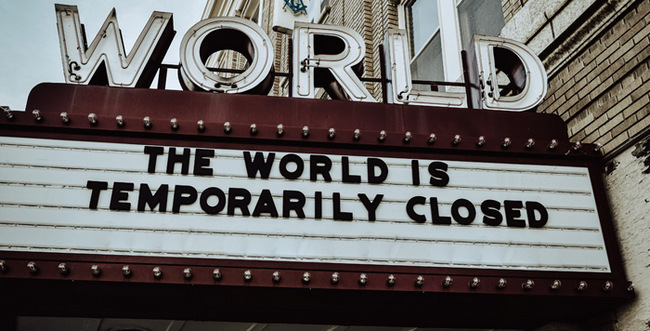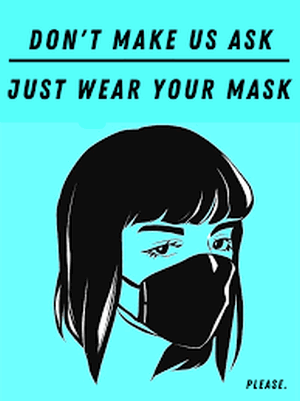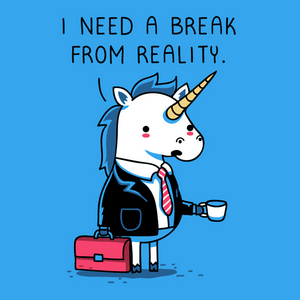Haphazard New Year, 2021
So that’s it for 2020. A year best forgotten. But it’s not going to be; it’ll be long remembered as the year of COVID. It resulted in deaths by the thousand, it split families, it left people (particularly the elderly, those living alone, and those with life-threatening medical conditions) isolated for months on end. It was the year of mental health issues affecting society at large, as people tried to cope with loneliness, depression, isolation, fear of infection, and the ever-present and unsettling fear that the authorities weren’t really in control of anything much. Or at least that’s how it appeared.
 2020’s dead and gone, and good riddance to it as it slinks away into a corner to die like a mercilessly beaten dog. But now we’re at the start of 2021 and people everywhere are hoping and praying that we can soon overcome this pandemic and regain control of our lives. The various vaccines are finally coming through, and in a few months there should be enough people vaccinated to achieve herd immunity. Only then will we really start to feel that we’re finally getting close to the end of this global nightmare.
2020’s dead and gone, and good riddance to it as it slinks away into a corner to die like a mercilessly beaten dog. But now we’re at the start of 2021 and people everywhere are hoping and praying that we can soon overcome this pandemic and regain control of our lives. The various vaccines are finally coming through, and in a few months there should be enough people vaccinated to achieve herd immunity. Only then will we really start to feel that we’re finally getting close to the end of this global nightmare.
What can we do to feel more in control?
We’re still in the position of being both at risk of infection and at risk of suffering some kind of mental health breakdown. Most of all, we need to stay strong, mentally and physically. And we still need to err on the side of common sense. Forget all the nonsense about this not being a ‘real’ pandemic, or it being in some way engineered by the authorities to keep us all under control. COVID-19 is a deadly disease (in many cases, at least), and we do need to keep taking precautions
 Wear a mask when you go out, specially if you’re going to enter an enclosed area where there are lots of people, such as a shop or a bar, or travelling on public transport. And wear it properly, covering both your nose and your mouth. You don’t need to be a trained medic to realise that playing fast and loose with masks is playing with fire. If everyone wore masks as a matter of course, the likelihood of you contracting the disease would be very much reduced.
Wear a mask when you go out, specially if you’re going to enter an enclosed area where there are lots of people, such as a shop or a bar, or travelling on public transport. And wear it properly, covering both your nose and your mouth. You don’t need to be a trained medic to realise that playing fast and loose with masks is playing with fire. If everyone wore masks as a matter of course, the likelihood of you contracting the disease would be very much reduced.
Wearing a mask is a simple and sensible precaution, and it helps prevent the disease spreading. Even if you think you’re not infected, wear a mask! You could have been infected since the last time you were tested, or you might be asymptomatic, i.e. showing and feeling no symptoms at all. Not wearing a mask would mean you are spreading the disease.
Other simple precautions are worth taking too; keeping a safe social distance, and washing your hands regularly, specially if you’ve just come back from shopping or visiting some place where you might have been in contact with an infected person, or a surface an infected person might have recently touched.
Regular, simple exercises are best
The next thing is to do some regular exercise. Right now you probably can’t use a gym. Or, if you can, you have to arrange in advance and book a slot. Do that, if it suits you, but don’t be tied to it. Don’t think that you can’t train for the duration just because the gyms are closed, or training times are restricted.
Get yourself into a routine of doing a little training every day. It’s important to train regularly, and to make it every day if possible. Regularity is important! Both your body and your mind thrive on regularity. And if you’re used to training regularly at the gym, there’s really no excuse for not training regularly at home.
You probably don’t have access to most of the equipment you’d be able to use in a gym, but there are probably things you can use at home (or things you can get hold of, or borrow, or whatever). For instance, a set of dumbbells; you can do a serious workout with just a set of dumbbells, if that’s all you’ve got available. If they’re fairly light, stick to high-rep sets.
Don’t forget those old standbys, press-ups, sit-ups and pull-ups. You don’t need any equipment for these exercises (apart from a pull-up bar). And you can do some worthwhile high-intensity interval training using just these exercises, plus maybe jumping jacks, planks and various abs exercises, all of which you can do on a carpet (or on your bed, for that matter). Change the routine every week or so if you have a set routine – the last thing you want is to start getting comfortable with a routine, ‘cos then your body will stop responding to it.
I can’t do long training sessions at home (for whatever reason)
Not a problem! You don’t have to do long sessions. If you do a 10-minute session every day that’s good. If you can manage a 10-minute session in the morning and another one later in the day, even better.
But I’ve pigged out over Christmas!
 Don’t worry, we’ve all had a bit too much! It’s only natural, and it won’t mess up your training routine if you’ve overdone it a bit with the festive food. Just become more aware of your eating habits once the Christmas season is over, and keep reminding yourself how easy it is to overeat (and how quickly it happens), and yet how long those extra pounds will tend to linger on your frame, and how hard it can be to shift them. Is it worth all the extra work to shed those holiday-time pounds, or is it better to just become watchful of what you eat and be sensible about swerving the bad stuff.
Don’t worry, we’ve all had a bit too much! It’s only natural, and it won’t mess up your training routine if you’ve overdone it a bit with the festive food. Just become more aware of your eating habits once the Christmas season is over, and keep reminding yourself how easy it is to overeat (and how quickly it happens), and yet how long those extra pounds will tend to linger on your frame, and how hard it can be to shift them. Is it worth all the extra work to shed those holiday-time pounds, or is it better to just become watchful of what you eat and be sensible about swerving the bad stuff.
Don’t become obsessive about your weight (or, more accurately, your fat), just gradually work at eating less of the things that should ideally be off-limits, and doing at least a few minutes’ fairly intense training each and every day.
But what about my mental health?
Glad you asked! No need to spend time and money with a therapist (even if you could manage it right now!), when all you need is a sensible approach to dealing with the problem yourself.
Set aside a few minutes a day (again, regularity, that’s the key!) … preferably at about the same time each day … and just sit relaxed and quiet. Don’t struggle to clear your mind or achieve oneness with the Universe. Just sit still and relax. You will inevitably have thoughts coming into your head about mundane matters, but just politely usher them to one side. Don’t berate yourself for failing to ‘meditate’ or achieve some specific mental state. Just remain calm and accept that thoughts will surface, even when you don’t want them to. It can be a hard habit to break, but obsessing over it isn’t going to help.
Breathe slowly and evenly. Focus your mind on your breathing. Feel your breath entering your body and visualise it energising your lungs and your bloodstream. Just know that you’re achieving something just by sitting quietly and focusing on your breathing … and just knowing that it’s doing you good.
Take a break from incessant thinking
You can spend these few minutes focusing on things you aim to do later in the day, or things you hope to achieve … or you can just totally relax and let your mind rest. Unless you’ve chosen to focus on a few things (your goals, for example), then just take this opportunity to give your mind a total rest. Don’t think of anything. I know, it can be hard to think of nothing. That’s why I said don’t berate yourself if you find thoughts surfacing. It will happen! But it’s not something to get upset about.
 Each time a thought arises, just recognise it … and let it go. Just because the thought entered your mind it doesn’t necessarily mean it’s vitally important. It doesn’t even mean it’s of any value at all actually. Don’t judge the thought. Just let it go. Just mentally sweep it to one side of your mental screen, and decide that you’re not entertaining that thought anymore.
Each time a thought arises, just recognise it … and let it go. Just because the thought entered your mind it doesn’t necessarily mean it’s vitally important. It doesn’t even mean it’s of any value at all actually. Don’t judge the thought. Just let it go. Just mentally sweep it to one side of your mental screen, and decide that you’re not entertaining that thought anymore.
Do this for a few minutes each day, and pretty soon you’ll be able to sit there and think of nothing at all. But without struggling to think of nothing at all! You will have developed the skill of not thinking. And this is a skill well worth developing.
Yes, thinking is a wonderful thing. Every bridge and motorway, every ship and train, every house and skyscraper and cathedral, every hospital and school, all began as a thought in someone’s mind. Nothing wrong with thinking. Of course not. But you don’t want to do it all the time. You can think too much, and it’s not good for you. Your mind needs rest just as much as your body does. A few minutes every day spent sitting quietly and not thinking of anything at all can be a wonderful retreat from the incessant hubbub of the world.
Remind yourself that you’re a strong, powerful individual
Before you come out of this little quiet time, and as you’re becoming much closer to 100% wakefulness, give yourself some powerful suggestions. Have a few carefully chosen affirmations and repeat them to yourself. Say things like this, but mentally, and accept them unreservedly and unquestioningly:
- I’m strong, fit and healthy and I’m fully in control
- I’m calm and relaxed … and I’m never in a rush
- I take care of everything, and I do it easily and comfortably
- I love everybody and everything … and everybody loves me!
- My body knows how to heal itself, and it is healing itself, 24 hours a day, every single day
- My body knows how to resist infection and how to stay safe at all times
As you become fully awake and alert, remind yourself that your subconscious mind accepts all these positive statements and acts on them, and know that you are becoming healthier and healthier. Do this regularly and you won’t feel the need for therapy. What you will feel is a gentle sense of knowing, way beyond hoping or wishing; you will sense that you are getting healthier, every single day. And this can only result in your subconscious mind aligning everything in such a way that you do become healthier.
And as you move into 2021 you will do so feeling healthy and relaxed, and secure in the knowledge that you’re doing everything possible to safeguard your mental and physical health.
